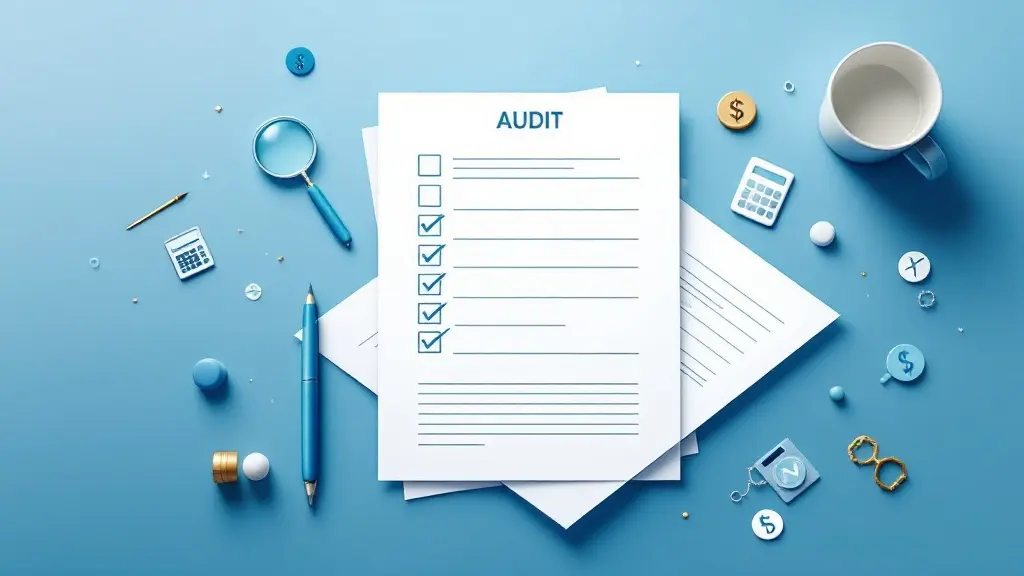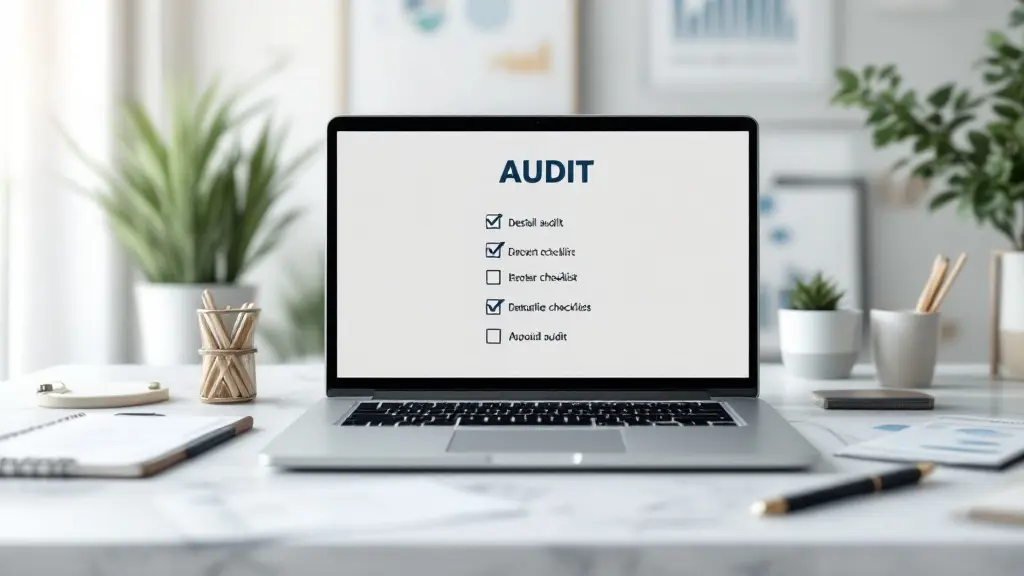Income Tax Filing: Maximize Your Savings Today
[fusion_dropcap class="fusion-content-tb-dropcap"]I[/fusion_dropcap]ncome tax filing can be one of the most daunting tasks for individuals and business owners alike, often leading to confusion and anxiety as the deadline approaches. Did you know that according to the IRS, nearly 20% of taxpayers fail to take advantage of available deductions, resulting in missed savings? As tax season rolls around, understanding how to navigate this complex landscape is essential for maximizing your financial benefits. Whether you’re a first-time filer or a seasoned veteran, knowing the key aspects of income tax filing can help you avoid common pitfalls, save money, and ultimately make the process much more manageable. Join us as we delve into the crucial components of income tax filing and share effective strategies to ensure you keep more of your hard-earned money in your pocket.
Understanding Income Tax Filing
Income tax filing is the process of reporting your earnings to the government and paying taxes on that income. This process is crucial for individuals and businesses alike, as it ensures compliance with tax laws and contributes to the functioning of public services.
Importance of Timely Filing
Filing your income taxes on time is vital for several reasons:
-
Avoiding Penalties: Late filing can lead to substantial fines and interest charges.
-
Ensuring Eligibility for Refunds: Timely filing increases the likelihood of receiving a refund if you're eligible.
-
Maintaining Good Financial Health: Staying current with your taxes reflects positively on your financial reputation.
Common Mistakes to Avoid in Income Tax Filing
Navigating the intricacies of income tax filing can be challenging. Avoiding common pitfalls can maximize your savings and simplify the process.
Failing to Keep Accurate Records
Maintaining detailed records is essential. Keep track of:
-
Income statements (W-2s, 1099s)
-
Receipts for deductibles
-
Bank statements
Misreporting Income
Ensure all income sources are accurately reported. This includes freelance work, investments, and any other earnings. Inaccuracies can lead to audits, additional taxes owed, and penalties.
Missing Out on Deductions
Many individuals miss valuable deductions such as:
-
Charitable donations
-
Medical expenses
-
Home office deductions
Strategies to Maximize Savings in Income Tax Filing
Maximizing savings during income tax filing can lead to substantial financial benefits. Here are key strategies to consider:
Leveraging Tax Deductions
Deductions reduce your taxable income. Some common deductions include:
-
Student loan interest
-
Mortgage interest
-
State and local taxes paid
Understanding Tax Credits
Tax credits provide a dollar-for-dollar reduction in tax liability. Examples include:
-
Earned Income Tax Credit (EITC)
-
Child Tax Credit
-
Education credits
Investing in Tax-Advantaged Accounts
Utilizing accounts such as IRAs and HSAs can lower your taxable income while saving for retirement and health expenses, respectively.
Choosing the Right Accounting Service for Income Tax Filing
Selecting a qualified accountant can make the income tax filing process smoother and more beneficial.
Benefits of Professional Accounting Services
Professional accountants can:
-
Offer expertise in tax laws and regulations
-
Provide customized solutions for your specific financial situation
-
Help identify savings opportunities you might overlook
Factors to Consider When Selecting an Accountant
When selecting an accountant, keep in mind:
-
Experience and specialization in tax filing
-
Reputation and client reviews
-
Fee structure and transparency
For more detailed tax information, you can visit H&R Block, a reputable source for tax filing guidance.
Step-by-Step Guide to Income Tax Filing
The process of income tax filing can be broken down into manageable steps:
Gather Necessary Documentation
Before you begin, ensure you have all relevant documents, such as:
-
Income statements
-
Previous tax returns
-
Documentation for claims and deductions
Choose the Right Filing Method
You can file your taxes by:
-
Using tax software
-
Hiring a tax professional
-
Filing manually (paper return)
File Your Taxes and Make Payments
After completing your forms, submit your tax return by the deadline and arrange for any payments owed to avoid penalties.
Conclusion: Ensuring a Smooth Income Tax Filing Experience
Planning for next year's tax filing begins today. Regularly update your financial records and stay informed on changing tax laws, ensuring a smooth and beneficial income tax filing process moving forward.
Common Mistakes to Avoid in Income Tax Filing
Income tax filing can be a complex process, and mistakes can lead to unwanted penalties or missed opportunities for savings. Being aware of common errors can help you navigate this essential task more efficiently.
Failing to Keep Accurate Records
One of the most significant errors taxpayers make is not maintaining organized and accurate records. This can hinder your ability to file correctly and maximize your deductions. Here are some strategies to keep your records in order:
-
Create a Filing System: Use physical or digital folders to categorize documents.
-
Track All Income Sources: Ensure you keep records of every income stream, including freelance work and bonuses.
-
Maintain Receipts: Keep receipts for all deductible expenses, like business-related purchases and charitable donations.
Misreporting Income
Accuracy in reporting income is crucial. The IRS expects you to report all income, and any discrepancies can trigger audits. To avoid misreporting:
-
Cross-Check Documents: Compare your 1099s and W-2s against what you report.
-
Include All Revenue Streams: Don't forget to account for rental income, freelance projects, and even side jobs.
Missing Out on Deductions
Many taxpayers overlook valuable deductions that can significantly reduce their taxable income. To take full advantage of available deductions, consider:
-
Educating Yourself on Tax Deductions: Familiarize yourself with common deductible expenses related to work, education, and healthcare.
-
Using Tax Software: Consider tax software that automatically identifies possible deductions.
By avoiding these common mistakes in income tax filing, you can save time and money, ultimately creating a smoother filing experience.
Strategies to Maximize Savings in Income Tax Filing
Maximizing your savings during income tax filing requires strategic planning and awareness of available options. Here are several key strategies to consider:
Leveraging Tax Deductions
Deductions lower your taxable income, meaning you pay taxes on a smaller amount. Here are some significant deductions that might apply:
-
Home Mortgage Interest: If you own a home, this deduction can be substantial.
-
Charitable Contributions: Donations to qualified charities can lead to significant tax savings.
-
Educational Expenses: Look for deductions related to tuition and relevant educational costs.
Understanding Tax Credits
Unlike deductions, which reduce your taxable income, tax credits directly reduce the amount of tax you owe. Consider these notable credits:
-
Child Tax Credit: Available for eligible families, this credit can significantly reduce your tax burden.
-
Earned Income Tax Credit (EITC): Designed to benefit low to moderate-income earners, this credit can enhance your savings.
Investing in Tax-Advantaged Accounts
Utilizing tax-advantaged accounts not only helps you save for future goals but can also lower your taxable income. Common options include:
-
Retirement Accounts (IRAs, 401(k)s): Contributions to these accounts may be tax-deductible, depending on your income level.
-
Health Savings Accounts (HSAs): Contributions to an HSA are tax-deductible and can be used to cover medical expenses.
Choosing the Right Accounting Service for Income Tax Filing
Selecting the right accounting service can greatly impact your overall income tax filing experience. Here’s how to make an informed choice:
Benefits of Professional Accounting Services
Investing in a professional accountant can streamline your income tax filing process. Key benefits include:
-
Expertise in Tax Laws: Accountants stay up-to-date with changing laws, ensuring compliance.
-
Customized Solutions: A professional can tailor strategies to your financial situation, maximizing savings.
-
Stress Reduction: Letting an expert handle your taxes reduces stress and frees up your time.
Factors to Consider When Selecting an Accountant
When choosing an accountant for income tax filing, keep these factors in mind:
-
Experience and Qualifications: Look for someone with a strong background in tax filing.
-
Client Reviews and Testimonials: Research online reviews to gauge the accountant’s effectiveness and reliability.
-
Transparent Pricing: Ensure their fee structure is clear and fits within your budget.
For further insights, explore tax resources from reputable firms like TurboTax, offering tools that simplify tax preparation.
Step-by-Step Guide to Income Tax Filing
Filing your income tax can seem overwhelming, but breaking it down into manageable steps can simplify the process significantly. Here’s a detailed guide to help you navigate through income tax filing with ease.
Gather Necessary Documentation
Before you start your income tax filing, it’s crucial to gather all necessary documents. This preparation will make the process smoother and ensures you won't forget any important information. Essential documents to collect include:
-
Income Statements: W-2s, 1099s, and any other forms that reflect your earnings.
-
Previous Tax Returns: Having past returns handy can provide context and help with consistency.
-
Deduction Documentation: Receipts and records for deductible expenses, such as medical, educational, and business-related expenditures.
Choose the Right Filing Method
Once your documents are prepared, determine the best method for filing your income tax. You have several options, each offering distinct benefits:
-
Online Tax Software: Many software options are user-friendly, guiding you through the filing process while maximizing deductions and credits.
-
Hiring a Professional Accountant: If your finances are complex, a tax professional can provide tailored insights and ensure accuracy.
-
Paper Filing: For those who prefer traditional methods, you can download tax forms from the IRS website and complete them manually.
File Your Taxes and Make Payments
After selecting your filing method and completing your forms, it's time to file your income tax and make any necessary payments. Here are important points to consider:
-
Double-Check Your Information: Review all entries to avoid errors that could trigger audits or delays.
-
Submit Your Return: Follow the instructions for your chosen filing method. For e-filing, ensure you receive a confirmation of submission.
-
Make Payments on Time: If you owe taxes, be sure to pay by the tax deadline to avoid penalties and interest. Payment options include electronic payment systems, credit cards, or checks.
Ensuring a Smooth Income Tax Filing Experience
To make your next income tax filing as efficient as possible:
-
Plan Ahead: Start organizing your documents early in the year. This proactive approach leads to a less stressful filing season.
-
Stay Informed: Keep updated on changes in tax laws that may impact your filing status, deductions, or credits.
-
Individual Strategy: Each taxpayer’s situation is unique; personalize your strategy based on your financial landscape.
For further exploration of tax filing tools, consider checking out Intuit, a leader in financial software solutions that assist with income tax filing.
Conclusion: Ensuring a Smooth Income Tax Filing Experience
Completing your income tax filing can be a daunting task, but with proper planning and awareness, you can streamline the process and potentially enhance your savings. Here are some key takeaways to keep in mind as you move forward:
Planning for Next Year
Your experience with this year's income tax filing can provide insights that will help you improve for next year. Consider implementing the following practices:
-
Set Up an Organized System: Create a dedicated folder for tax documents and receipts throughout the year to avoid last-minute scrambles.
-
Schedule Regular Check-Ins: Monthly reviews of your income and expenses can help you stay informed about your financial situation and tax obligations.
Staying Updated on Tax Laws
Tax laws can change from year to year, impacting your income tax filing significantly. Staying informed about these changes will help you make better financial decisions. Here’s how to keep track:
-
Subscribe to Tax Newsletters: Consider newsletters from reputable sources like the IRS or accounting firms that summarize key changes.
-
Follow Financial News: Major changes in tax legislation are often covered in the media, providing an excellent way to stay updated.
Consulting Experts When Needed
While it may be tempting to handle income tax filing independently, consulting with a tax professional can offer substantial benefits, especially if your financial situation is complex. They can:
-
Provide Personalized Advice: Experts can offer tailored strategies based on your unique financial circumstances.
-
Identify Oversights: A tax professional will likely catch potential deductions and credits you may have missed, maximizing your savings.
In conclusion, ensuring a smooth income tax filing experience ultimately revolves around planning, education, and seeking professional input when necessary. By implementing these strategies and maintaining awareness of your financial landscape, you can navigate the complexities of income tax filing with confidence.
For more comprehensive guidance and resources, consider visiting TurboTax, where you can find valuable tools for effective income tax filing.
Understanding Income Tax Filing
Income tax filing is a systematic process where individuals and businesses report their earnings to the government and pay taxes owed based on those earnings. This essential duty supports government functions and public services and can greatly influence a taxpayer's financial health.
The importance of understanding income tax filing cannot be overstated, as it directly impacts your financial standing and compliance with the law. Here’s what you need to consider:
What is Income Tax Filing?
Income tax filing refers to the submission of tax forms and documentation to declare your income, claim applicable deductions, and settle any tax liability. Understanding the components involved can simplify this process:
-
Taxable Income: The total income that is subject to taxation after deducting any allowable expenses and exemptions.
-
Tax Rate: The percentage of your income that you owe to the government. This can vary based on your income bracket.
-
Deductions and Credits: These can reduce the amount of taxable income and overall tax liability, respectively.
The Importance of Timely Filing
Timely income tax filing is crucial for several reasons:
-
Avoiding Penalties: Late submissions can result in hefty fines and interest charges, adding extra financial stress.
-
Ensuring Refund Eligibility: If you’re due a refund, filing on time can help expedite the process and allow you to receive your money sooner.
-
Maintaining Compliance: Timely filing reflects your commitment to adhering to tax laws, which can benefit any future financial transactions or business dealings.
By understanding the core elements of income tax filing and the importance of doing so promptly, you can navigate through your tax obligations more confidently.
For additional resources on understanding income tax, you can visit IRS.gov, which offers comprehensive information and tools for taxpayers.
Common Mistakes to Avoid in Income Tax Filing
When it comes to income tax filing, even minor mistakes can lead to significant consequences, including fines or missed deductions. By being aware of common pitfalls, you can navigate the process more efficiently. Here are several key mistakes to look out for:
Failing to Keep Accurate Records
One of the most common errors during income tax filing is insufficient record-keeping. Accurate records are essential to verify your income and support any deductions you claim. To ensure you’re organized, consider the following tips:
-
Maintain a Tax File: Create a physical or digital folder for all tax-related documents collected throughout the year.
-
Track All Income: Keep detailed records of all income sources, including side jobs and freelance work.
-
Save Receipts: Document all related expenses to support your deductions, from travel costs to office supplies.
Misreporting Income
Accuracy in reporting your income is critical. Misreporting can lead to audits or additional tax bills. To avoid this mistake:
-
Double-Check Income Statements: Compare reported figures against W-2s and 1099s to ensure consistency.
-
Report All Sources of Income: Be comprehensive in your declarations; failing to include side jobs or capital gains can result in penalties.
Missing Out on Deductions
Many taxpayers overlook valuable deductions that could lower their taxable income. Consider these common overlooked deductions:
-
Student Loan Interest: You may be eligible to deduct interest paid on student loans.
-
Charitable Contributions: Donations to eligible charities can help you save on taxes.
-
Home Office Deductions: If you work from home, you may qualify for deductions related to your home office.
By avoiding these common mistakes and staying organized, you can ensure a smoother income tax filing process and potentially maximize your tax savings.
For more information on avoiding tax mistakes, you can visit H&R Block, where you can find additional resources and tips.
Frequently Asked Questions
What is the deadline for income tax filing?
The typical deadline for income tax filing is April 15th each year. However, if April 15 falls on a weekend or holiday, the deadline may be extended to the next business day. Always check with the IRS for any updates or changes to the tax deadline.
How can I maximize my deductions during income tax filing?
To maximize your deductions, familiarize yourself with all available options, including commonly overlooked deductions like student loan interest, mortgage interest, and business-related expenses if you are self-employed. Keeping accurate records and receipts throughout the year can help ensure you don’t miss any deductions.
What should I do if I can’t afford to pay my taxes?
If you find yourself unable to pay your taxes, it's advisable to file your income tax return on time to avoid additional penalties. You can explore payment options such as an IRS payment plan or request an extension. Ignoring the tax bill can lead to more severe consequences, so it’s essential to address the situation promptly.
Can I file my income tax electronically?
Yes, you can file your income tax electronically using various online tax services and software. E-filing is often faster, more efficient, and allows for quicker refunds. The IRS also provides its own e-filing system for taxpayers who qualify to file for free.
What happens if I file my income tax return late?
Filing your income tax return late can result in penalties and interest on any taxes owed. The longer you wait, the more you may have to pay. If you're unable to meet the deadline, it's best to file for an extension while ensuring that you pay any estimated taxes owed to avoid additional charges.









